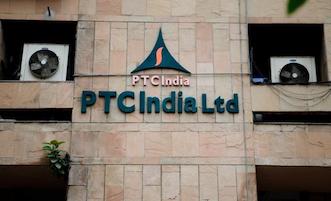Sridhar Vembu, Zoho’s CEO, has garnered attention by advocating for a decentralized, employee-centric business model. Beyond creating a healthy work culture, Vembu’s approach also highlights important financial lessons for investors and entrepreneurs alike. Let’s dive into how his philosophy could shape investment strategies and what we (individual investors) can learn from his life theories.
1. Decentralization as a Financial Strategy
Sridhar Vembu’s decision to shift Zoho’s core operations to rural areas is a clear example of decentralization as a strategic financial move. By choosing locations outside expensive urban centers, Zoho minimizes operational expenses, cutting down on rental costs, utilities, and other overheads associated with city-based offices.
This approach creates a leaner cost structure, enabling Zoho to reinvest savings into product development and employee benefits. These are the factors that support sustainable growth. Long term investors loves companies with this type of cost structure.
For startups, decentralization offers a viable alternative to the traditional city-based business model. It provides early-stage companies an opportunity to direct their limited resources toward innovation and growth rather than expensive office spaces.
For investors, supporting companies that adopt a decentralized model can mean lower risk. These businesses often demonstrate financial prudence The can avoid the high operating expenses and intense competition that come with urban centers.
Decentralization also aligns well with recent trends in remote work and flexible workplaces. Companies adopting a rural model may experience higher employee satisfaction and retention. This way the can reduce hiring and training costs.
Ultimately, investors looking for long-term stability should consider companies that take advantage of decentralized operations.
Such companies have higher operational efficiency and financial resilience.
2. Investing in Companies that Prioritize Employee Well-Being
Zoho’s emphasis on employee well-being aligns with sustainable growth principles that many investors value.
Today’s companies must reducing workplace stress and creating a supportive environment. Zoho, under Sridhar Vembu’s leadership, seems to fosters long-term employee satisfaction.
Studies show that companies prioritizing well-being often enjoy lower turnover, increased loyalty, and higher productivity. All of these factors contribute to consistent growth.
For investors, targeting businesses that emphasize employee health and satisfaction can be a prudent choice. Such companies are less likely to experience disruptions from frequent staffing changes, a factor that promotes operational stability.
In the long run, supporting organizations with positive work cultures can yield steady returns. These companies focus on growth without compromising the quality of the workplace experience.
3. Recognizing the Value in ESG Principles
Zoho’s operational model exemplifies ESG (Environmental, Social, and Governance) principles by integrating social responsibility and sustainability into its business.
Under Sridhar Vembu’s leadership, Zoho’s rural office locations help reduce urban congestion. Hence, indirectly, in a way, it supports environmental goals while also promoting work-life balance for employees. This alignment with ESG values makes companies like Zoho appealing to retail investors who prioritize ethical investments and long-term, stable growth.
Investing in companies that adopt ESG principles can add stability to a portfolio. These companies often build trust with their communities and clients.
4. Financial Takeaways from Vembu’s Decentralization Approach
Sridhar Vembu’s decentralization strategy at Zoho highlights the financial advantages of operating efficiently and ethically.
By locating operations in rural areas, Zoho minimizes overhead costs like rent and utilities, allowing the company to allocate more resources toward growth.
For investors, this is a reminder to look beyond the numbers and assess how a company’s operating model impacts long-term sustainability.Businesses that prioritize cost-effective operations and ethical practices often show resilience in tough economic conditions.
When evaluating stocks, consider companies that optimize expenses, avoid unnecessary spending, and emphasize stable, sustainable growth.
Conclusion
Sridhar Vembu’s leadership at Zoho Corporation exemplifies a holistic approach to business that prioritizes sustainability, employee welfare, and community development.
By decentralizing operations to rural areas, Zoho not only slashes costs but also catalyzes local economic growth. It is Mr. Vembu’s way to demonstrate that profitability and social responsibility can indeed go hand in hand.
His business model challenges traditional urban-centric business strategies. It is his way to tell that companies can thrive by investing in people and places which is often overlooked.
For investors, Zoho’s management style is an example of build long-term value of businesses. It underscores the potential for businesses to be both profitable and purposeful.
For me, Zoho offers a blueprint for those looking to invest in entities that align with long-term sustainability and ethical growth.
[Recent News: Zoho’s Sridhar Vembu criticized Freshworks’ decision to lay off 660 employees despite holding substantial cash reserves and a 20% growth rate. Vembu argued that Freshworks prioritized shareholder value through a $400 million stock buyback instead of retaining employees or investing in new business lines. He called the move “naked greed” and stated it underscored why Zoho remains private, prioritizing employees and customers over shareholders. Vembu’s criticism hints at deeper philosophical differences with Freshworks, which he implied lacks vision and empathy in this approach.]
Have a happy investing.






